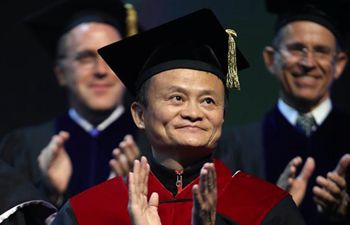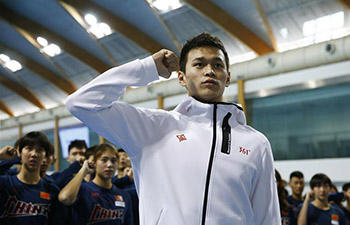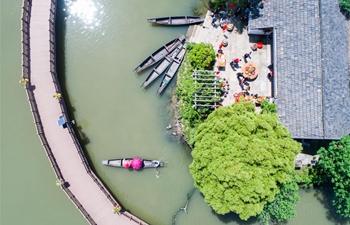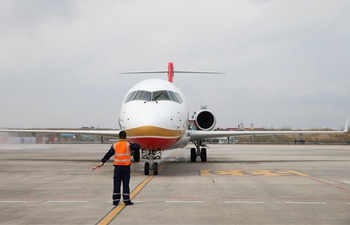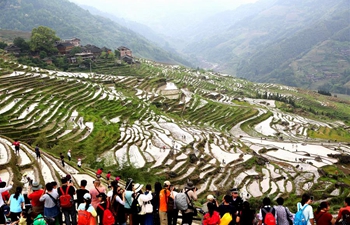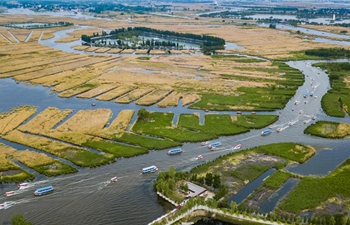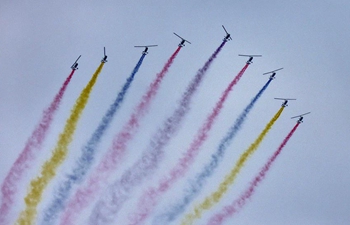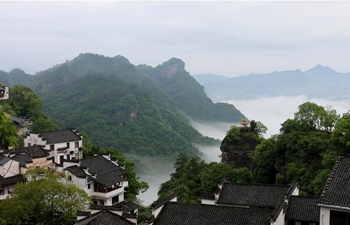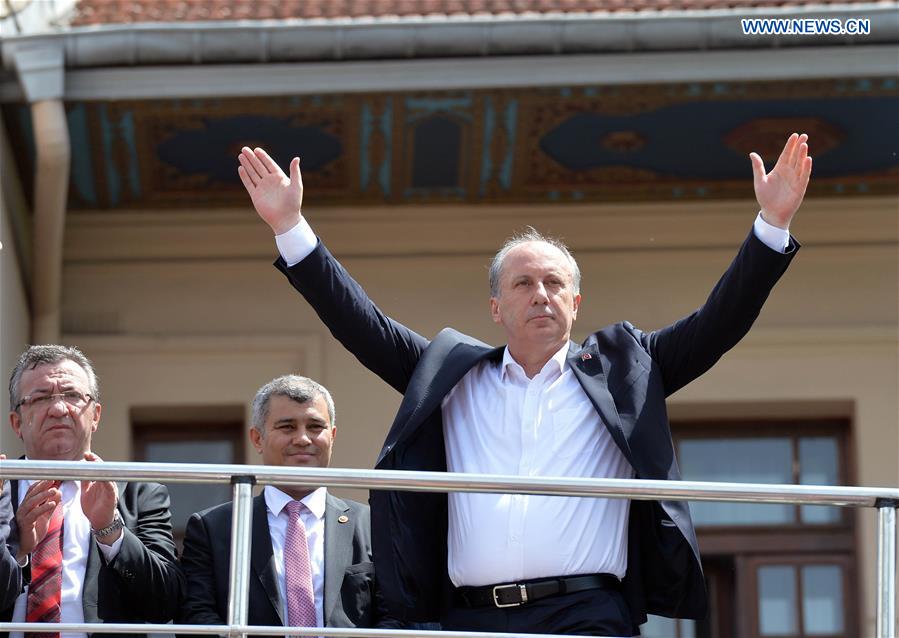
Muharrem Ince (Front), presidential candidate of Turkey's main opposition Republican People's Party (CHP), attends a rally in Ankara, Turkey, on May 4, 2018. Turkey's main opposition Republican People's Party (CHP) on Friday designated Muharrem Ince as its presidential candidate for the June 24 early elections. (Xinhua/Mustafa Kaya)
ANKARA, May 4 (Xinhua) -- After intense talks and speculations, Turkey's main opposition Republican People's Party (CHP) on Friday designated Muharrem Ince, a veteran lawmaker, as the presidential challenger in the general elections on June 24.
The long-awaited announcement was made by Kemal Kilicdaroglu, leader of CHP, in front of hundreds of party members in the capital Ankara.
For his part, Muharrem Ince vowed to be an "impartial" president for the entire 80-million Turkish population.
Being a parliamentarian representing his hometown Yalova Province since 2002, Ince has run twice for the leadership of the CHP against Kilicdaroglu, most recently in 2018.
Moreover, the 54-year-old presidential candidate is known as a staunch defender of secular principles and reforms by Mustafa Kemal Ataturk, founder of modern Turkey.
Turkish President Recep Tayyip Erdogan in April called on snap legislative and presidential elections, in order for a swift switch from a parliamentary system to an executive presidency approved by a constitutional referendum in 2017.
Some fierce rhetoric is expected on the campaign trail between Erdogan and Ince.
Ince once told an interview that he would put the presidential palace up for sale if he wins.
He said on Friday that he will transform the palace into a "center of science for students."
Erdogan, who has led Turkey since 2003 as the prime minister first and then president, is the clear favorite of the presidential race, but could still face serious challenge in a second round of voting if he doesn't obtain 50 percent of votes in the first round.
The Turkish strongman was officially nominated on Tuesday by his ruling party Justice and Development (AKP).
The elections will be held under a state of national emergency. Since the emergency was first imposed following the failed military coup in July 2016, nearly 160,000 people have been detained.
Erdogan, 64, who has never lost an election, is considered Turkey's most popular politician, admired by millions across his country for strong economic achievement.
In his announcement of the early polls, Erdogan said Turkey needs to switch quickly to a powerful presidency to confront economic challenges and the war in Syria.
Despite the spectacular 7.4-percent GDP growth in 2017, the Turkish economy still suffers from overheating, overspending and increasing foreign debt, which have led to the tumbling of the national currency.
In the first four months of 2018, the Turkish lira has lost 8 percent of its value against the U.S. dollar. Besides, economic growth and rising interest rates in the U.S. have led global funds to start pulling out of emerging economies including Turkey.
Moreover, April has marked the ninth consecutive month of retail price increases.
To counter the electoral alliance formed by the ruling AKP and two nationalist parties MHP and BBP for the parliamentary elections, four opposition parties, including CHP, are also expected to announce their alliance on this weekend.
This opposition bloc aims to solve the protectionist nature of Turkey's electoral system, where the party has to receive at least 10 percent of ballots, or around 5 million votes, to secure a parliamentary seat, the highest threshold in western countries.
Soner Cagaptay, a political analyst, called the four-way alliance "the Turgut Ozal alliance," referring to late President Turgut Ozal who came to power in the early 1980s by blending opposing ends of the political spectrum.
According to recent polls, AKP, which has always obtained a comfortable majority in parliament, could still face defeat in the June elections even though Erdogan wins the presidency, thus creating a major hurdle for his administration.
Other rivals in the presidential race are Meral Aksener, leader of the newly-formed IYI (Good) Party, Temel Karamollaoglu, leader of the conservative Saadet (Felicity) Party, and Selahattin Demirtas, imprisoned leader of the pro-Kurdish Peoples' Democratic Party (HDP).
But Erdogan remains confident of winning both elections in June.
"My people are aware of everything," he told reporters on Thursday, insisting that the opposition bloc would not obtain majority in parliament.




